
Florida WCA President Surrenders Credentials over Extreme Requirements
|
|

|
|

By Walter Fenton –
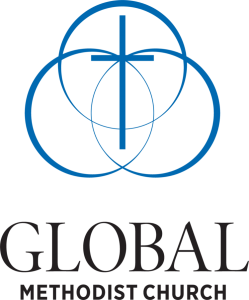 The Transitional Leadership Council, a 17 member team of theologically conservative Methodists, has released information on the Global Methodist Church.
The Transitional Leadership Council, a 17 member team of theologically conservative Methodists, has released information on the Global Methodist Church.
The council said the new church will officially come into existence when a United Methodist General Conference adopts the implementing legislation for the Protocol for Reconciliation and Grace through Separation. Alternatively, if it becomes apparent that the leading bishops, centrists, and progressives who covenanted to support the Protocol no longer do so, then the council will consider bringing the new church into existence without delay. Local United Methodist churches, annual conferences, and central conferences will then be able to join the new denomination.
“The primary mission of the Global Methodist Church will be to make disciples of Jesus Christ who worship passionately, love extravagantly, and witness boldly,” said the Rev. Keith Boyette, who serves as chairman of the Transitional Leadership Council. “Over the past year the council members, and hundreds of people who have informed their work, have faithfully and thoughtfully arrived at this point. They are happy to share with others a wealth of information about a church they believe will be steeped in the life giving confessions of the Christian faith.”
With the announcement of the new church the council authorized the release of a comprehensive and detailed website. It includes the new church’s mission statement, vision, information about its name and logo, a frequently asked questions section, and downloadable versions of the church’s Transitional Book of Doctrines and Discipline in English, French, Korean, Portuguese, and Spanish. The website clearly notes that “the Global Methodist Church is in formation” and will officially launch when the Protocol is approved, or if it becomes apparent that an amicable and orderly separation no longer has the support of a broad coalition of leading bishops, centrists, progressives, and traditionalists. In the case of the latter, the Transitional Leadership Council will consider bringing the new church into existence without delay.
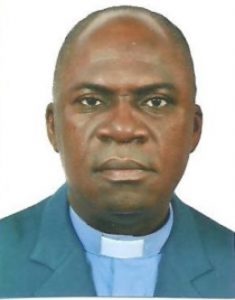
Philippe Adjobi.
“It was a great honor to participate in such exhilarating work,” said the Rev. Philippe Adjobi, a member of the Transitional Leadership Council, a district superintendent in the Cote d’Ivoire Annual Conference and a General Conference delegate. “I believe the Global Methodist Church will fulfill the expectations and aspirations of local churches throughout Africa. They will appreciate focusing on what is essential: testifying to Jesus Christ for the transformation of the world.”
Adjobi and the names of the other 16 members of the council are listed on the Global Methodist Church’s website. They are theologically conservative women and men who come from Africa, Eurasia, the Philippines, and the United States. The list includes laity, clergy and bishops who have been integrally involved in the UM Church for years, and who believe an amicable and orderly separation is the best way forward for a denomination deeply divided and beset by significant challenges.
Theologically conservative United Methodists have made no secret of their efforts to form a new church. In late 2018, the Wesleyan Covenant Association created a Next Steps Working Group to begin drafting its own “Book of Doctrines and Discipline” outlining essential theological confessions and governing structures for a new church’s consideration. It did so in light of the special called 2019 General Conference, where delegates once again addressed issues that have deeply divided the UM Church for decades. The special conference was called to hopefully resolve differences, but many believed it could just as easily reveal the necessity of separation.
The special General Conference proved to be as contentious and divisive as many people anticipated when a Traditional Plan reaffirming the UM Church’s sexual ethics, teachings on marriage, and ordination standards was approved. Progressive and centrist United Methodists in the U.S. denounced the General Conference’s actions and resolved to defy the global body vested with the sole power to speak authoritatively for the UM Church.
Within weeks, small groups of centrist, progressive, and traditionalist UM Church leaders, quietly and often haltingly began having conversations about plans for dividing the denomination. A group convened by the late Bishop John Yambasu of Sierre Leone and guided by the world renown mediator Kenneth Feinberg hammered out the Protocol and its implementing legislation. The 16 member team included leading UM bishops and representatives from the major advocacy groups representing centrists, progressives, and conservatives.
The Protocol team released its plan in early January 2020 and it quickly gained the sometimes hopeful and sometimes grudging support of United Methodists around the world. It appeared headed for likely passage at the denomination’s May 2020 General Conference.
In light of the Protocol a group of theologically conservative UM Church leaders met in Atlanta, Georgia, the first week of March 2020. The group included several traditionalist bishops, evangelical advocacy group leaders, and other clergy and laity who identified as theologically conservative. Over the course of three days the leaders agreed to an expansive vision for a new Methodist church, and then nominated the members of the Transitional Leadership Council, assigning them the task of forming the new church.
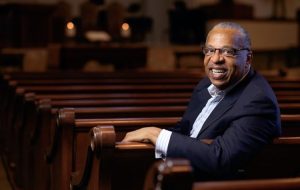
Dr. Bob Hayes.
“I am convinced the Global Methodist Church will be a vibrant, vital expression of Methodism in terms of its teachings and ethics,” said Dr. Bob Hayes, a Transitional Leadership Council member and Bishop in Residence at The Woodlands United Methodist Church in The Woodlands, Texas. “As a fourth generation Methodist I am excited by a fresh wind of the Holy Spirit where I see God doing a new thing! God is creating a church rooted in Scripture and the love of Jesus, and he is calling us to participate with him. We’re not there just yet, but given our vision, our hope, and our perseverance, I’m confident we’ll get there!”
At the time of the Transitional Leadership Council’s formation, no one knew the Covid-19 pandemic would result in the postponement of the UM Church’s 2020 General Conference. Like many other UM Church leaders, the traditionalists who met in Atlanta anticipated the passage of the Protocol in May of last year and intended for the Transitional Leadership Council to form the new church and oversee it until it could hold a convening General Conference.
Despite the postponement of an in-person General Conference, the Transitional Leadership Council has been meeting almost weekly since March 2020. As is evident in its Transitional Book of Doctrines and Discipline, the council has approved the Global Methodist Church’s core confessions of faith, hammered out a transitional governing structure, and adopted the new church’s name and logo. The council has emphasized fidelity to the historic teaching of the Christian faith, and a desire to be a truly global church.
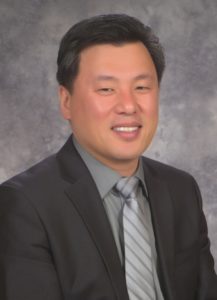
Rev. Kevin Ryoo.
“I believe a good number of ethnic congregations will want to align with the Global Methodist Church,” said the Rev. Kevin Ryoo, a council member and an elder in the Dakotas Annual Conference. “They long for a church which honors the Bible, stays within the traditional mission of Methodism, and keeps local church ministry as a first priority. I know Korean Methodist congregations have a strong passion for evangelism and mission.”
A number of Korean UM pastors reached out to the Wesleyan Covenant Association not long after the association’s formation and have offered their insights and ideas for what a new theologically conservative church might look like.
Boyette, who is the president of the Wesleyan Covenant Association, acknowledged that while the association has played a role in preparing for the new church, many other traditionalist leaders have been critical in the formation of the Global Methodist Church.
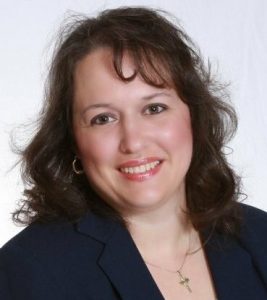
Leah Hidde Gregory.
“Traditionalists do not march in lock-step,” said the Rev. Dr. Leah Hidde Gregory, a Transitional Leadership Council member and a district superintendent in the Central Texas Annual Conference. “Some traditionalists have been wary of the WCA, thinking it was moving too fast and others believing it was moving too slow. It took a few meetings before I realized there were only three people from the WCA leadership on our council. It became obvious to me that the group who nominated us wanted to make sure all people who regard themselves as traditionalist, orthodox, conservative, or evangelical were represented on the Transitional Leadership Council.”
Hidde Gregory also noted the misinformation that has swirled around the work of forming a new traditionalist church. “It’s unfortunate that some people have falsely claimed we are opposed to the full inclusion of women as clergy in a new church; nothing could be further from the truth. We make very clear the new church will be fully open to women, and to all ethnicities and races.”
In the “Frequently Asked Questions” section of its website the new church states, “Women, like men, will be called to serve in the Global Methodist Church and will be entitled to serve at all levels.” The section also says, “As a truly global church the denomination will be ethnically and racially diverse and will insist on the equal treatment of all the church’s members.”
Council members believe that if the Protocol’s implementing legislation is adopted, thousands of local churches and clergy in Africa, Eurasia, the Philippines, and the U.S. will want to join the Global Methodist Church. It is widely recognized that clergy and laity in Africa, Eastern Europe and Russia, and in parts of the Philippines are more theologically conservative than their counterparts in the U.S. Although, even in the U.S., a significant percentage of laity identify as theologically conservative, and are part of small, midsize, and large traditionalist local churches.
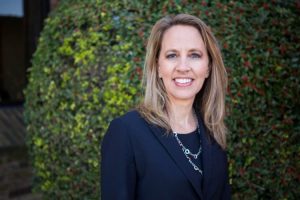
Cara Nicklas.
“I believe Methodism is on the cusp of another Great Awakening,” said Transitional Leadership Council member Cara Nicklas, an attorney and General Conference delegate from the Oklahoma Annual Conference. “The Global Methodist Church is the vehicle by which that will happen because we value a connectional, global church with doctrine and discipline that is not guided by our U.S. culture but is simply focused on bringing people into a deep and intimate relationship with our Lord and Savior Jesus Christ.”
The Transitional Leadership Council will continue to prepare for the official launch of the Global Methodist Church. It meets on almost a weekly basis and regularly receives extensive reports from task force groups dealing with everything from the necessity of a local church’s board of trustees to theological statements regarding the sacraments of baptism and holy communion.
“True to our roots, we’re a patient and methodical people,” said Boyette. “We want to do our very best to help theologically conservative local churches, laity and pastors navigate the transitional period as smoothly as possible. And then we look forward to the Global Methodist Church’s convening General Conference where we hope the duly elected delegates will find what we have done to be helpful. It will be their great task and responsibility to discern God’s will and so help all its local churches and people live fully into the body of Christ.”
To learn more about the Global Methodist Church, click HERE.
The Rev. Walter Fenton is Vice President for Strategic Engagement for the Wesleyan Covenant Association and is an elder in the Greater New Jersey Annual Conference.